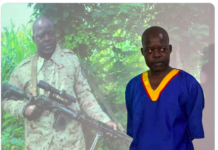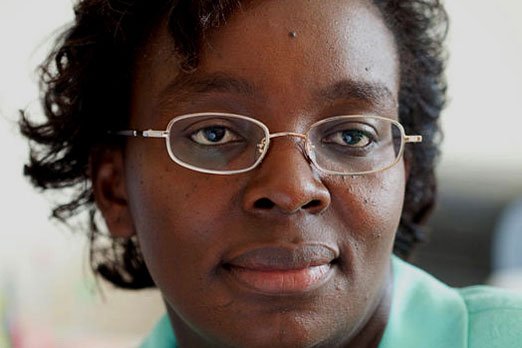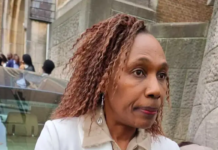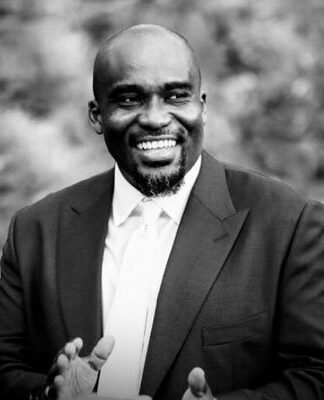The European Parliament,
– having regard to its resolution of 23 May 2013 on Rwanda: case of Victoire Ingabire(1),
– having regard to the African Charter on Human and Peoples’ Rights (ACHPR),
– having regard to the African Charter on Democracy, Elections and Governance,
– having regard to the Principles and Guidelines on the Right to a Fair Trial and Legal Assistance in Africa,
– having regard to the UN Convention against Torture and Other Cruel, Inhuman or Degrading Treatment or Punishment,
– having regard to the International Covenant on Civil and Political Rights of 1966, which was ratified by Rwanda in 1975,
– having regard to the outcome of the 2015 Universal Periodic Review of Rwanda and to the 2016 concluding observation of the UN Human Rights Committee,
– having regard to the Cotonou Agreement,
– having regard to the Declaration by the High Representative Federica Mogherini on behalf of the EU on constitutional review in Rwanda, of 3 December 2015,
– having regard to the joint local EU statement of 18 December 2015 on the referendum on a draft constitution in Rwanda,
– having regard to the press release of 16 March 2016 of the United Democratic Forces on the appeal case of political prisoner Victoire Ingabire Umuhoza,
– having regard to the Freedom House report on Rwanda 2015,
– having regard to the Amnesty International country report ‘Rwanda 2015/2016’,
– having regard to the Amnesty International report entitled ‘Justice in jeopardy: The first instance trial of Victoire Ingabire’ of 2013,
– having regard to the answer by Vice-President / High Representative Catherine Ashton to a European Parliament written question regarding Victoire Ingabire (plenary sitting of 4 February 2013),
– having regard to the Human Rights Watch statement entitled ‘Rwanda: Opposition Activist Missing’ of 29 September 2016,
– having regard to the 2014 report on Rwanda of the UN Special Rapporteur on the rights to freedom of peaceful assembly and of association,
– having regard to Rules 135(5) and 123(4) of its Rules of Procedure,
A. whereas Rwanda is among the few African countries playing a leading role in the achievement of the MDGs, especially on issues such as gender equality, women’s empowerment, universal primary education, child and maternal mortality, HIV prevalence and environmental sustainability;
B. whereas strong economic growth has been accompanied by substantial improvements in living standards, evidenced by a two-thirds drop in child mortality and the attainment of near-universal primary school enrolment;
C. whereas economic and political efforts have been made in order to improve the economy of the country and make it more industrialised and service oriented;
D. whereas on 30 October 2012 Victoire Ingabire, President of the Unified Democratic Forces (UDF), was sentenced to eight years’ imprisonment for conspiracy to harm the authorities using terrorism, and for minimising the 1994 genocide, on the basis of relations with the Democratic Forces for the Liberation of Rwanda (FDLR);
E. whereas in September 2016 a delegation from the European Parliament was denied access to jailed opposition leader Victoire Ingabire; whereas although the focus of the visit was women’s role in society and their empowerment, the Ministry of Foreign Affairs and Cooperation considered there was ‘no special reason for Ms Victoire Ingabire, a convict that is subjected to national detention guidelines and rules, to receive a visit of the EU Members of Parliament on official mission’;
F. whereas the mission noted that important challenges remain in this regard, such as access to education in rural areas, more equal property rights and better access to non‑farm employment, and whereas the human rights situation, in particular as regards political participation and freedom of expression in Rwanda, remains worrying, while independent civil society is still very weak;
G. whereas many human rights organisations have denounced the first-instance trial of Victoire Ingabire, as serious irregularities were observed and she was treated unfairly; whereas in its report Amnesty International points to prejudicial public statements made by the Rwandan President in advance of her trial, and a reliance on confessions from detainees in Camp Kami where torture is alleged to be used; whereas, after having testified in 2012 against Victoire Ingabire in the Rwandan High Court, four prosecution witnesses and co-accused told the Supreme Court in 2013 that their testimonies had been falsified;
H. whereas on 13 September 2012, Victoire Ingabire Umuhoza was nominated, together with two other Rwandan political figures, Bernard Ntaganda and Deogratias Mushyayidi, for the European Parliament’s Sakharov Prize for Freedom of Thought 2012 ;
I. whereas in 2015 Ms Ingabire appealed to the African Court on Human and Peoples’ Rights, accusing the Rwandan Government of violating her rights; whereas in March 2015 Rwanda withdrew from the jurisdiction of the African Court, claiming that Rwanda’s courts were capable of dealing with all local cases; whereas, on 29 February 2016, the Rwandan Government withdrew its declaration allowing individuals to file complaints directly with the African Court on Human and Peoples’ Rights, only days before judges were to hear a case brought against the Rwandan Government by Victoire Ingabire;
J. whereas, according to FDU-Inkingi, Victoire Ingabire’s party, Ms Ingabire’s detention conditions have deteriorated significantly since April 2016; whereas she is being deprived of external and special-diet meals and her medical certificate has been invalidated;
K. whereas, among other things, FDU-Inkingi has not been able to legally register as a political party and several of its members have been threatened, arrested and detained;
L. whereas several opposition party members are being kept in prison; whereas Illuminée Iragena, a nurse and political activist linked to FDU-Inkingi, has been missing for the past five months and there are fears for her safety; whereas Léonille Gasengayire, the treasurer of FDU-Inkingi, was arrested on 23 August 2016 and charged with inciting public insurrection;
M. whereas Rwanda ranks 161st out of 180 in the 2016 World Press Freedom Index; whereas press freedom has continued to deteriorate as independent journalists have frequently been harassed, threatened and arrested; whereas exiled and foreign journalists are increasingly being subjected to extra-legal intimidation, violence and forced disappearance for criticising officials in their reporting;
N. whereas, in October 2014, the government indefinitely suspended the British Broadcasting Corporation (BBC) Kinyarwanda-language radio service following the airing of a controversial BBC television documentary about Rwanda’s 1994 genocide;
O. whereas the consolidation of democracy, including ensuring the independence of the judiciary and the participation of opposition parties, is crucial, particularly in view of the presidential election to be held in 2017;
P whereas the Rwandan judicial system´s shortcomings in conducting the criminal trial of Victoire Ingabire have undermined its ability to deal with high-profile political cases;
Q. whereas Rwanda is a key player in the Great Lakes region and can play a crucial role in the stabilisation process, including through the fight against the illegal trade in minerals and other natural resources; whereas the 2015 report of the UN Group of experts on the Democratic Republic of Congo (DRC) recommends that the Government of Rwanda investigate and prosecute those involved in the illegal trade in tin, tantalum and tungsten, as well as the laundering of minerals from the DRC in Rwanda;
1. Strongly condemns politically motivated trials, the prosecution of political opponents and the prejudging of the outcome of the trial; urges the Government of Rwanda to extend economic and social achievements to the field of human rights in order to fully move towards a modern and inclusive democracy; urges the Rwandan authorities to ensure that Victoire Ingabire’s appeal process is fair and meets the standards set under Rwandan and international law; underlines that trials and the charges brought against accused persons cannot be based on vague and imprecise laws, and the misuse thereof, as is occurring in the case of Victoire Ingabire;
2. Expresses its deep concerns at the Rwandan Supreme Court’s denial of appeal and judgement sentencing Victoire Ingabire to 15 years’ imprisonment and at the worsening conditions of her detention; believes that the appeal process conducted in Rwanda did not meet international standards, including Ms Ingabire’s right to presumption of innocence;
3. Stresses that Rwanda’s withdrawal in March 2016 from the jurisdiction of the African Court on Human and Peoples’ Rights (ACHPR) just a few days prior to the hearing of the appeal case by Ms Ingabire is circumstantial and is aimed at limiting the direct access of individuals and NGOs to the Court;
4. Reminds the Rwandan authorities that the EU has raised its concerns regarding respect for human rights and the right to a fair trial within the official political dialogue with Rwanda under Article 8 of the Cotonou Agreement; calls for a prompt and impartial review of Ms Ingabire’s case, based on facts, in accordance with the law and without any restrictions, improper influences, pressures or threats; calls for Victoire Ingabire’s rights, including her access to legal representation and adequate food and treatment, to be upheld in prison;
5. Condemns any acts of intimidation, arrests, detentions and prosecutions of opposition party leaders, members and activists, as well as journalists and other perceived critics of the Rwandan Government, solely for expressing their views; urges the Rwandan authorities, in this connection, to review and adjust national law in order to guarantee freedom of expression, in particular Articles 463 and 451 of the penal code, which constrains freedom of expression;
6. Calls on the Rwandan Government to show its willingness to investigate alleged abuses against opposition activists and journalists and to bring military detention centres into conformity with Rwanda’s laws and international standards; urges the Rwandan authorities immediately to release all individuals and other activists detained or convicted solely for exercising their right to freedom of expression, association and peaceful assembly and to ensure the separation of administrative, legislative and judicial powers, in particular the independence of the judiciary;
7. Urges the Rwandan authorities to step up their efforts to investigate the cases of Illuminée Iragena, John Ndabarasa, Léonille Gasangayire and other individuals who are feared to have been forcibly disappeared, to reveal their whereabouts and release or try them, if they are in detention, as well as to ensure the fairness of the trials of actual or suspected government opponents or critics, including those of Frank Rusagara, Joel Mutabazi, Kizito Mihigo and their respective co-accused;
8. Urges the Rwandan authorities to ensure peaceful, credible and transparent elections in 2017 and calls on the government to engage with the opposition in the run-up to these elections; expresses its support for a long-term EU electoral observation mission for the 2017 presidential elections, with a focus on the political space and fundamental freedoms;
9. Reminds the Rwandan authorities that democracy is based on pluralistic governments, a functioning opposition, independent media and judiciary, respect for human rights and the right of expression and assembly; calls, in this connection, on Rwanda to open its political space, live up to these standards and improve its human rights record; expects Rwanda to implement the recommendations of the UN Special Rapporteur on the rights to freedom of peaceful assembly and of association (2014);
10. Calls on the Rwandan authorities, as a matter of urgency, to proceed with the review of its declaration allowing individuals and NGOs to file complaints with the African Court on Human and Peoples’ Rights and to restore and reintroduce it;
11. Calls for the EU and its international partners to continue supporting the people of Rwanda in their work to build peace and stability in the country and the region as a whole;
12. Asks the Commission to continue to evaluate EU support to Rwandan government institutions on a regular basis, in order to ensure that this support fully promotes human rights, freedom of expression and association, political pluralism and independent civil society;
13. Instructs its President to forward this resolution to the Council, the Commission, Vice-President / High Representative Federica Mogherini, the UN Security Council, the UN Secretary-General, the institutions of the African Union, the East African Community, the ACP-EU Joint Parliamentary Assembly, the EU Member States, the defenders of Victoire Ingabire and the President of Rwanda.
Source: The European Parliament
































































‘Asks the Commission to continue to evaluate EU support to Rwandan government institutions on a regular basis, in order to ensure that this support fully promotes human rights, freedom of expression and association, political pluralism and independent civil society’
Which of your countries fully promotes human rights????????????
“When a man points a finger at someone else, he should remember that four of his fingers are pointing at himself.”
look at how the two reports differ.
http://eeas.europa.eu/delegations/rwanda/documents/press_corner/news/20160922-eu-parliament_en.pdf
pointing to the same story. People from Western are trying to play games that will never win. Maybe you may find other grounds not Rwanda.
We discovered who you are